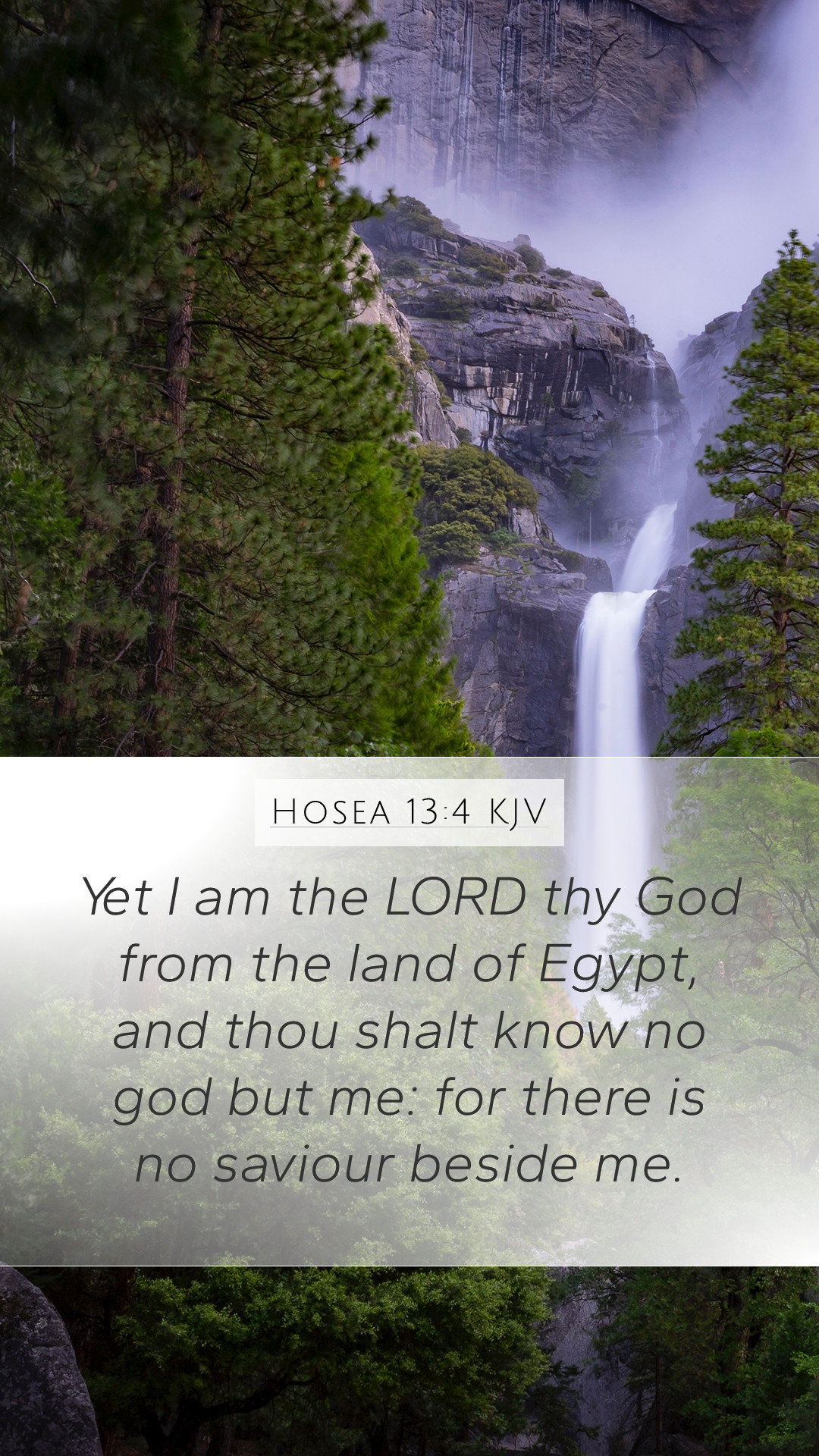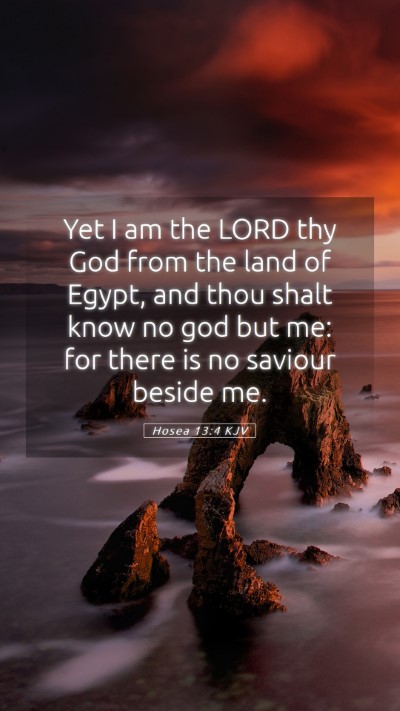Old Testament
Genesis Exodus Leviticus Numbers Deuteronomy Joshua Judges Ruth 1 Samuel 2 Samuel 1 Kings 2 Kings 1 Chronicles 2 Chronicles Ezra Nehemiah Esther Job Psalms Proverbs Ecclesiastes Song of Solomon Isaiah Jeremiah Lamentations Ezekiel Daniel Hosea Joel Amos Obadiah Jonah Micah Nahum Habakkuk Zephaniah Haggai Zechariah MalachiHosea 13:4 Meaning
What is the meaning of Hosea 13:4?
Yet I am the LORD thy God from the land of Egypt, and thou shalt know no god but me: for there is no saviour beside me.
Hosea 13:4 Bible Verse Meaning
Bible Verse Commentary on Hosea 13:4
Hosea 13:4 states: "Yet I am the Lord thy God from the land of Egypt, and thou shalt know no god but me: for there is no savior beside me." This verse encapsulates a profound declaration about God's identity and His unique relationship with His people.
Summary of Meaning
This verse asserts God’s sovereignty and His exclusive role as the deliverer of Israel. In the context of Hosea, the prophet is addressing the Israelites’ infidelity and idolatry, urging them to recognize that their strength and salvation come solely from God.
Insights from Commentaries
-
Matthew Henry:
Henry emphasizes the importance of acknowledging God as the sole guide and source of salvation. He reflects on Israel’s history, particularly the deliverance from Egypt, as a demonstration of God’s power and mercy. This historical context serves as a reminder of God's continual faithfulness amidst Israel's rebellion.
-
Albert Barnes:
Barnes notes that the expression "I am the Lord thy God" serves as an ever-present reminder of God's covenant promise to Israel. He points out that idolatry is not only a betrayal of God but also a futile pursuit because there is "no savior" except through Him. Barnes links this verse to the broader theological themes of trust and dependency on God's unparalleled might.
-
Adam Clarke:
Clarke delves into the implications of knowing God as the “one God” and explores the consequences of Israel’s spiritual unfaithfulness. He underscores that the revelation of God comes with a call to purity and devotion, suggesting that understanding who God is will compel a response of loyalty and service. Clarke’s analysis invites readers to reflect on their own understanding of God’s nature.
Key Themes
- Divine Sovereignty: God's authority as the supreme being to be worshiped.
- Historical Remembrance: Recognizing God’s past actions (e.g., the Exodus) informs current faith.
- Exclusivity of Worship: Emphasizing the futility of other gods in light of God's saving power.
- Call to Repentance: Encouragement for individuals and nations to turn back to God.
Application of the Verse
For those engaging in Bible study groups or online Bible study, Hosea 13:4 offers a profound opportunity to reflect on the relationship between believers and God. In applying this text to daily life, individuals may ask themselves:
- What idols in my life distract from my devotion to God?
- How can I strengthen my relationship with God as my only savior?
- In what ways does historical context enhance my understanding of God's promises?
Cross References
Hosea 13:4 resonates with several other passages, including:
- Exodus 20:3: "Thou shalt have no other gods before me."
- Isaiah 43:11: "I, even I, am the Lord; and beside me there is no savior."
- Deuteronomy 32:39: "See now that I, even I, am he, and there is no god with me."
Conclusion
In conclusion, Hosea 13:4 serves as a central reminder of God's identity and our calling to recognize His sovereign role in our lives. This verse guides believers in understanding their faith and encourages a commitment to worship and serve God alone, further enriching their Bible study insights and enhancing the understanding of Scripture.


